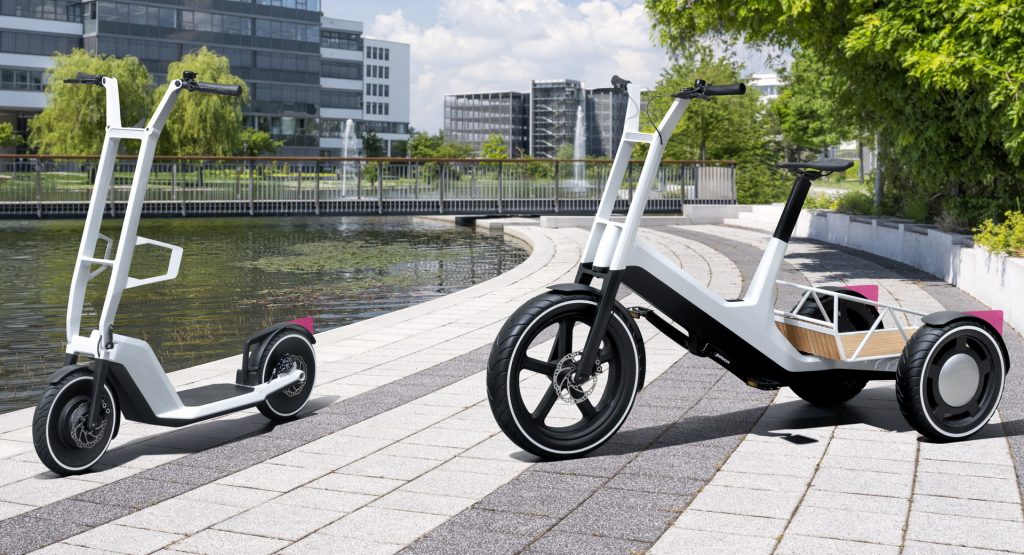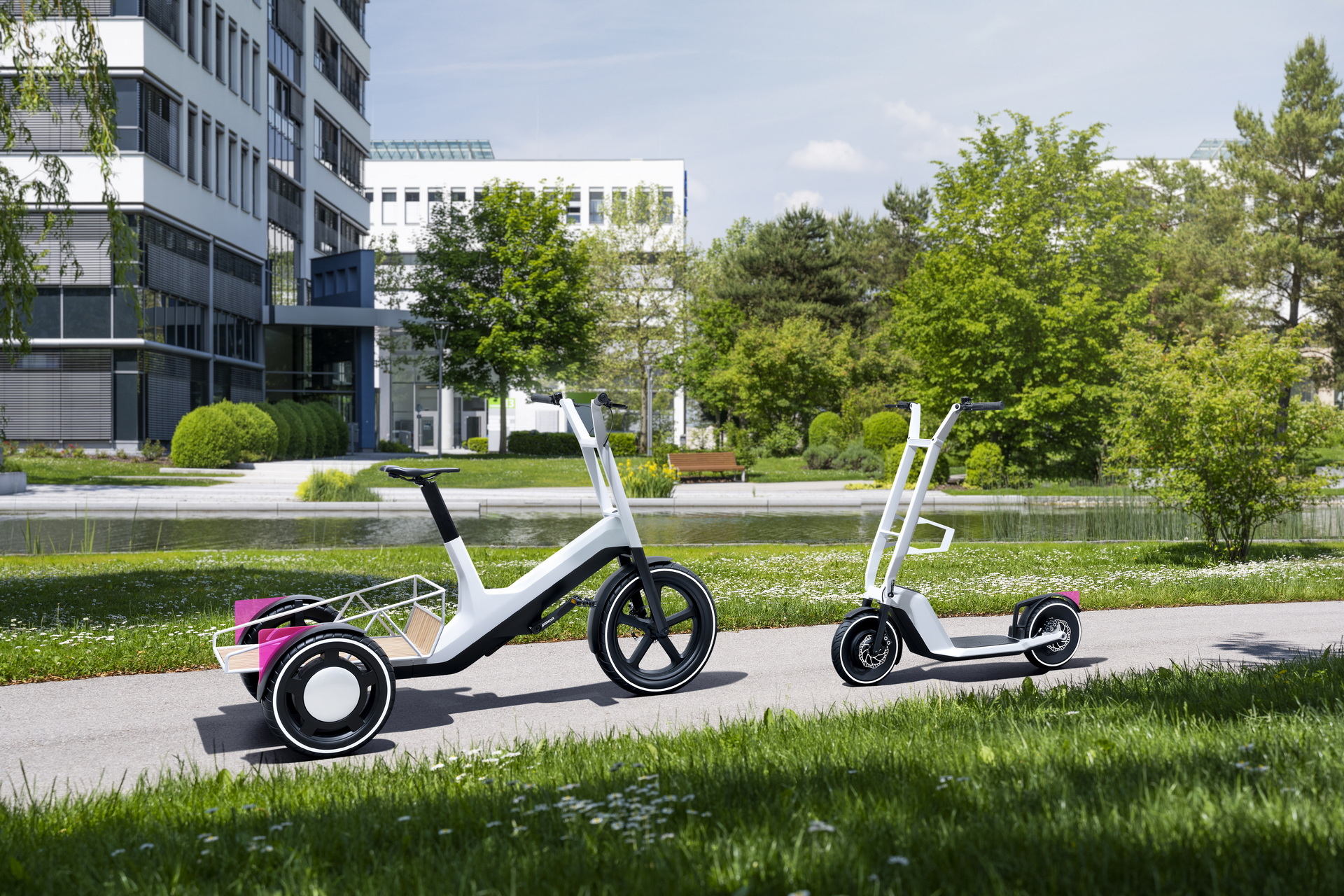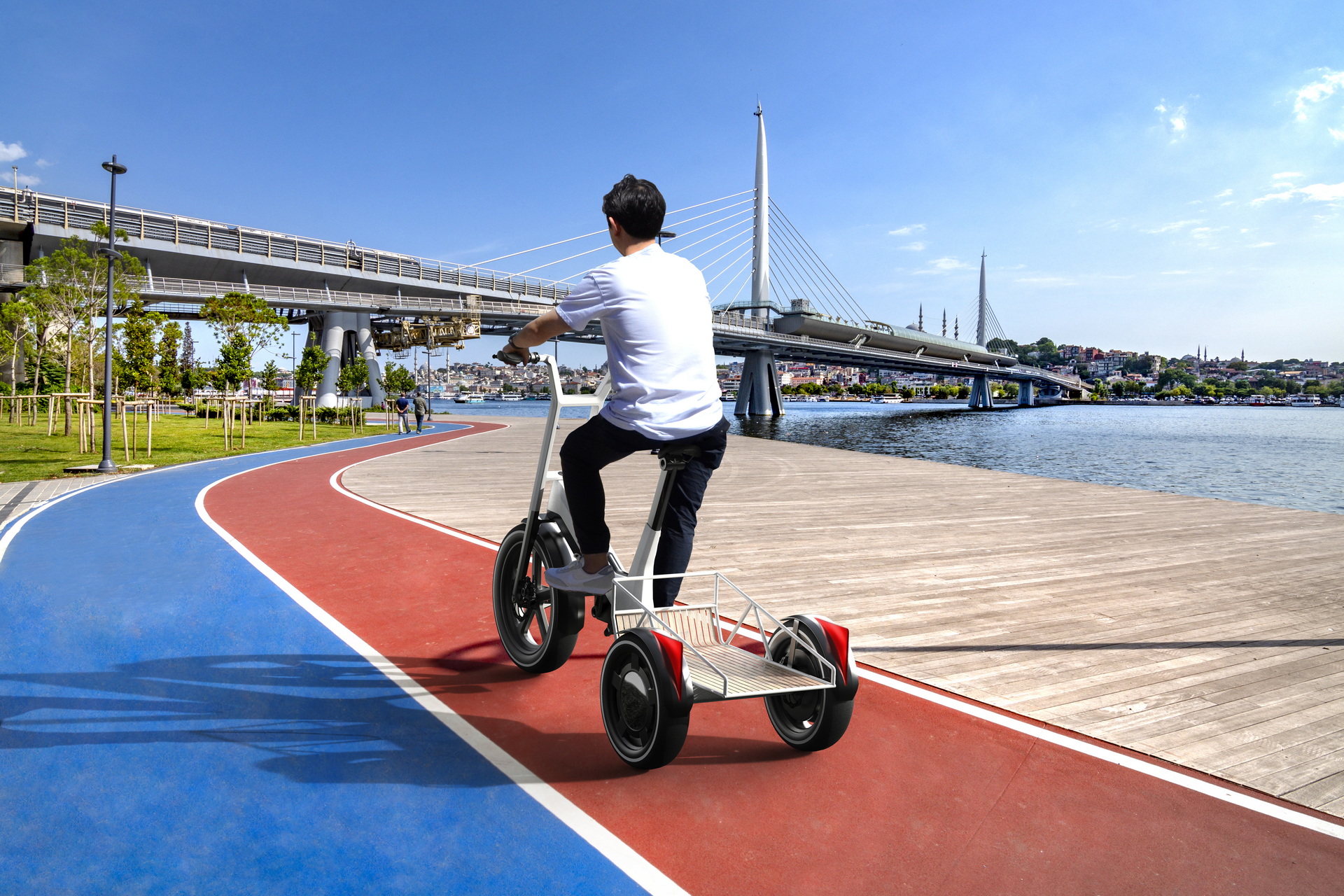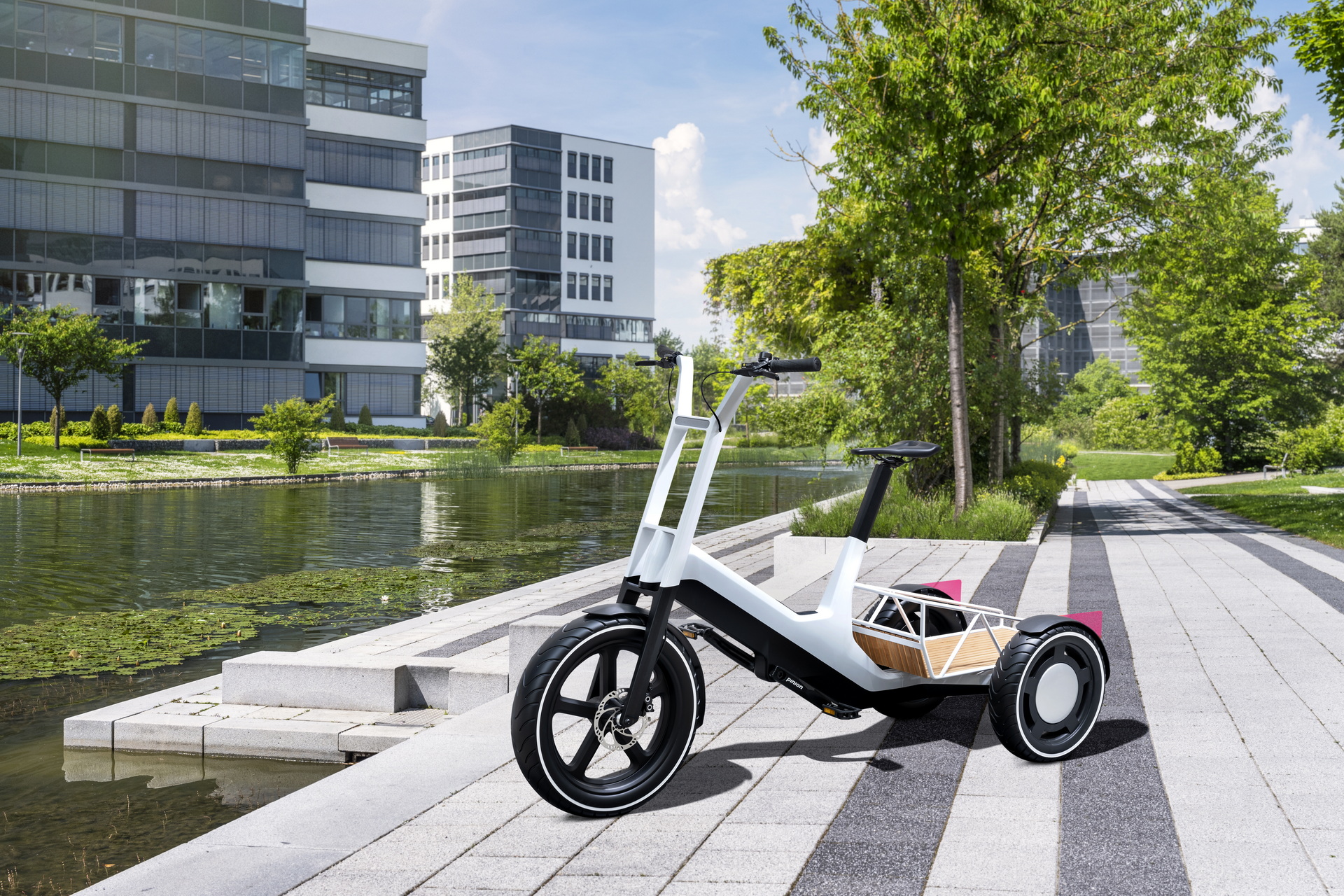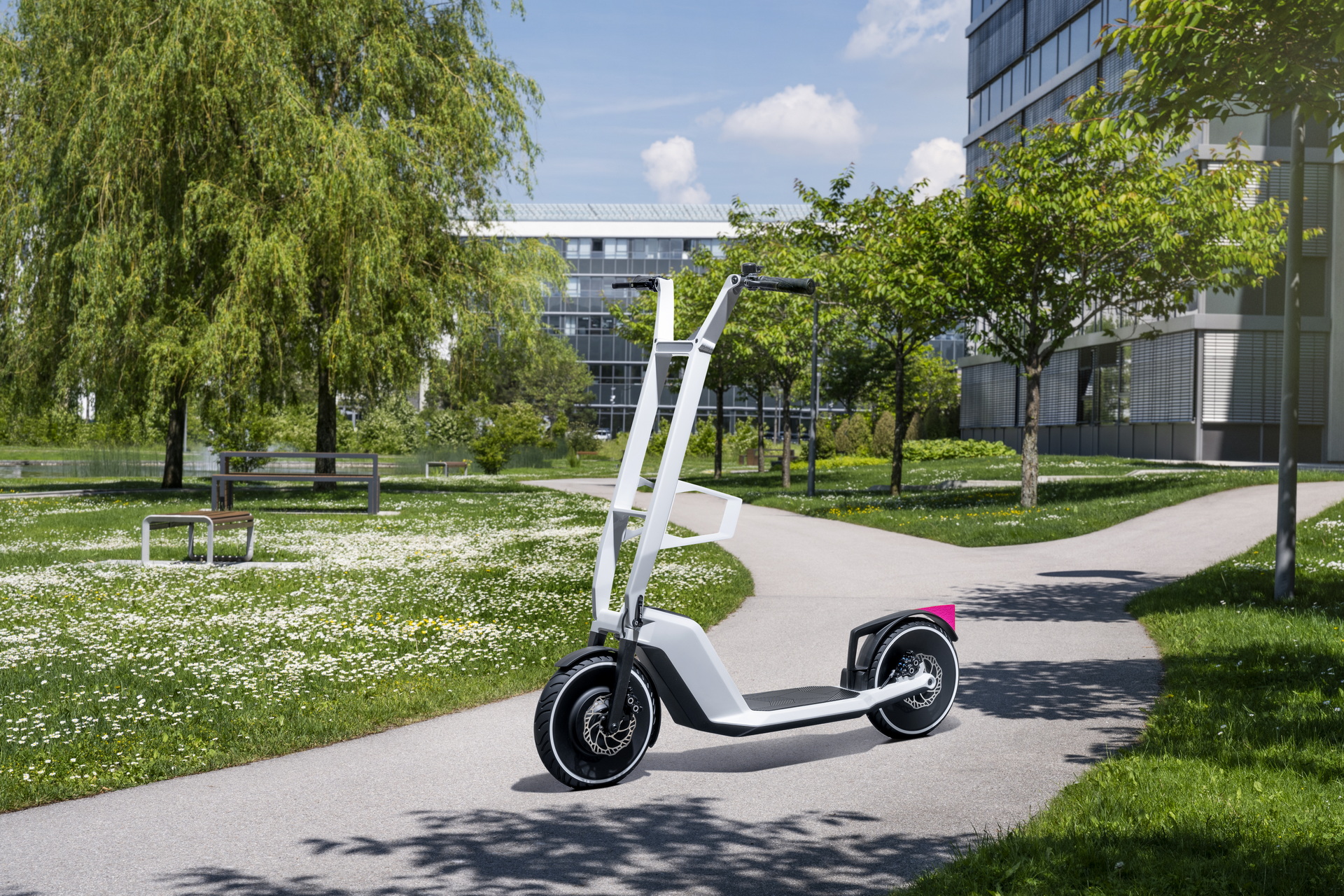BMW is trying to think of ways to make moving around a city better and it has come up with two new electric concepts. Unlike BMW’s usual products, though, both are also human-powered.
The Concept DYNAMIC CARGO and the Concept CLEVER COMMUTE are an e-tricycle and an e-scooter, respectively, that BMW hopes will help city-dwellers find new ways through the city when trips are a little too far to walk and a little too close to drive.
The Concept DYNAMIC CARGO is a tricycle that BMW has designed to carry loads. This could be helpful for parents with young children, food-deliverers, and people who like to use bicycle to run their daily errands.
Read Also: The Lancia Ypsilon Has Just Spawned An Electric Scooter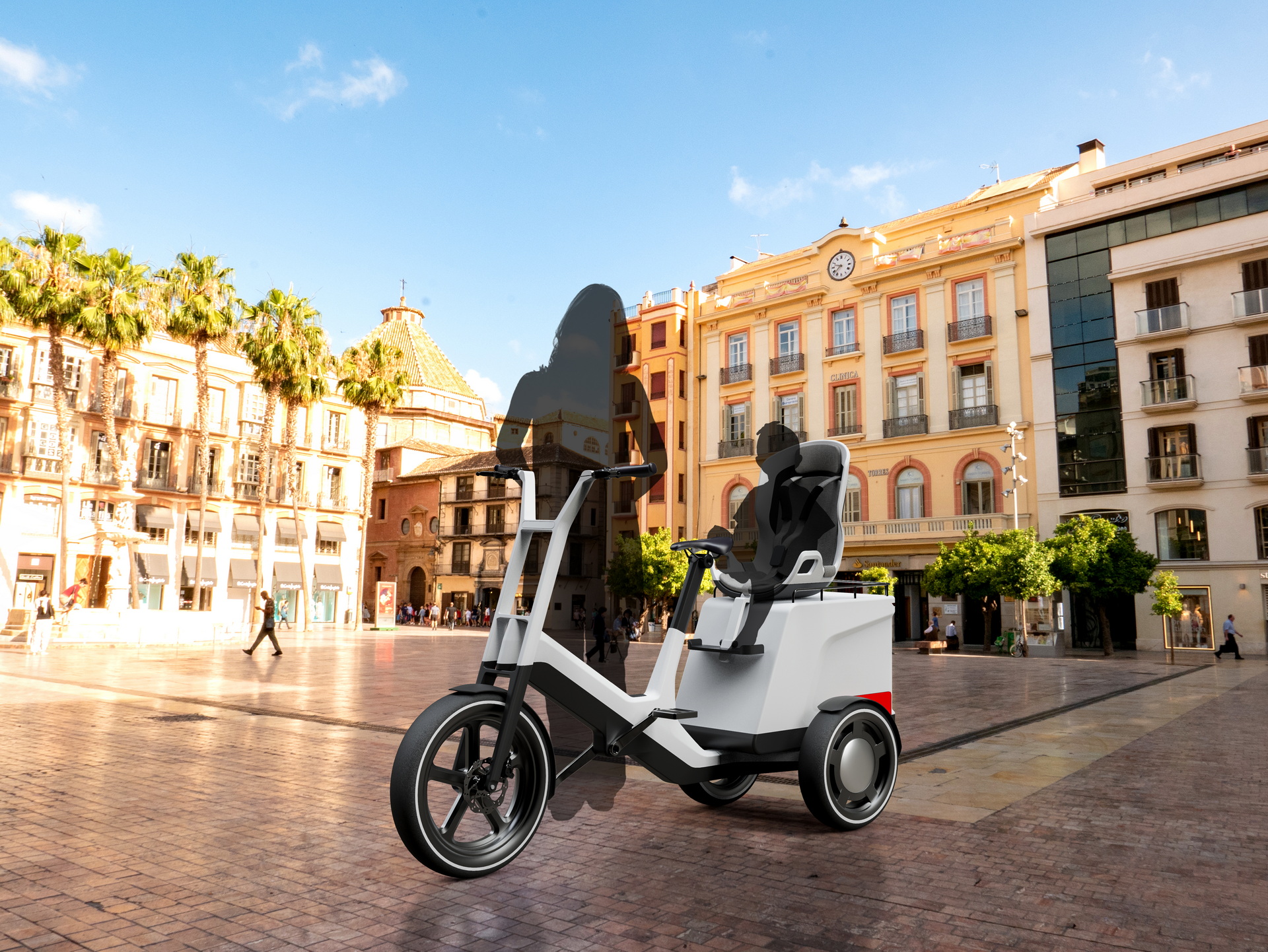
The three-wheel design helps increase stability and keeps the back of the trike from leaning to help prevent loads from falling off the cargo area. The design of the front section, though, means that the front wheel does lean a bit, giving the concept a more bike-like feel.
To help with heavy loads, the Concept DYNAMIC CARGO also features an electric motor that works as soon as the rider starts pedaling. Powering the rear wheels, it makes rides (especially those with heavy loads) easier.
BMW has also conceived of weather protection to help keep loads dry. It argues that this, along with the stable three-wheel design, makes the Concept DYNAMIC CARGO the perfect vehicle for year-round commuting, regardless of the weather.
The Concept CLEVER COMMUTE, meanwhile, is a push-scooter that also features an electric powertrain. This one has a removable battery that powers the front wheel.
Powering the front wheel was especially important for the modularity of the design. With a footpad that can shrink, BMW says that the scooter will fit into the trunk of a 3 Series and diagonally into the back of a MINI without lowering the seats. Owners can also easily take it on escalators if part of their trip includes a ride on the subway.
BMW says that it has no plans to produce either of these concepts, though it is in conversations with potential licensees for both. The concepts have a range of 20 km (12 miles) and a removable battery to make it easier to charge. Timelines and pricing are, unfortunately, not available.




